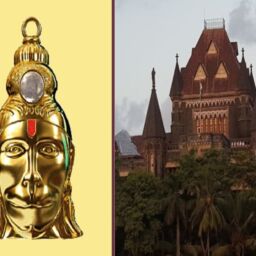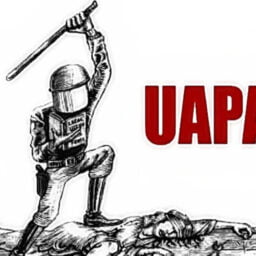INTRODUCTION
“…. the canons of ethics and propriety for the legal profession totally taboo conduct by way of soliciting, advertising, scrambling and other obnoxious practices, subtle or clumsiness, for the betterment of the legal business. The Law is not a trade, briefs no merchandise and to the heaven of commercial competition or procurement should not vulgarise the legal profession.”
– Justice Krishna Iyer[i]
INTRODUCTION
Legal advertising refers to the advertisement of legal services provided by a lawyer or a law firm to entice potential clients. Advertisement of legal services can be done through various mediums such as printing, mailing, television, and through the internet. Even though an enormous number of lawyers enroll with the bar council each year, advertisement of the legal profession is still prohibited in India. Advocates and law firms are not allowed to advertise their services in an effort to reach out to more potential clients. Despite India having more than a million lawyers, there is very little information and knowledge available about these firms and lawyers available for the general public. As Lloyd Pearson stated, “We know little about most Indian firms – mainly the small, elite firms that work with the leading UK and US international outfits. Sure, many of the 1.2 million lawyers are one-man bands in small villages, but everyone would be better served if we knew more about the richness and variety on offer in the Indian legal market.”[ii]
HISTORY OF LEGAL ADVERTISING
Until 1977, The United States of America had also practiced laws prohibiting the advertisement of legal services. These laws were challenged in the case of Bates v. State Bar of Arizona[iii] and it was held that legal advertising is also a form of commercial speech which is a form of protected communication under the first amendment of the constitution of the United States of America. Today, a lawyer is allowed to advertise themselves and their work and reach out to in any way manner that is in conformity with the conditions mentioned in the Model Rules of Professional Conduct, 1983.
The Indian courts have been for a long time of the opinion that if lawyers started advertising themselves and their services, it would result in the corruption of legal ethics among lawyers and would tarnish this noble profession. This thought process can be witnessed in a statement by the Madras High Court in 1967, in which it states that advertising would lead to jealousy among the lawyers and this would induce unhealthy competition among them which might entice them to compromise with their ethics in order to trump each other. There was also a fear that lawyers might try to entice and exploit the less fortunate and illiterate population which amounts to a large chunk of the population.
REGULATION OF ADVERTISEMENT OF LEGAL SERVICES IN INDIA
Rules regarding the advertisement of legal services in India are regulated by the Bar Council of India. The Bar Council of India (BCI), a statutory body established under the Advocates Act, 1961. The Bar Council of India is empowered to make rules and regulations on the professional standards that need to be maintained by advocates. Rule 36 of the ‘Standards of Professional Conduct and Etiquette’[iv] laid down by the Bar Council of India states that advocates shall not advertise either directly or indirectly their legal practice in the market whether by circulars, ads, interviews, or newspaper coverage. Even if a lawyer argues exceptionally well and wins a high-profile case there will be very little to no mention of such lawyer in the newspaper and the publication of their picture has also been prohibited. Even the size of their nameplates is regulated and is supposed to be of a ‘reasonable size’. There should also be no mention of past presidency or membership of a bar council in the nameplates.
However, in 2008, a resolution was passed by the BCI before the supreme court. As a result of this resolution, the rules got amended rules and advocates were now given the right to publish certain information on their websites. The information published should be in conformation with the rules and approved by the BCI.
RULE 36 – VIOLATIVE ARTICLE 19 (1) (A)
The Constitution of India grants freedom of speech and expression to all the citizens under Article 19 (1) (a), which are subject to reasonable restrictions as the exceptions mentioned in Article 19 (2). If one goes through the exceptions mentioned in the above section, one can logically deduce that the right to advertise legal services does not come under the purview of any of the exceptions posing reasonable restrictions on freedom of speech. Can the prohibition of the advertisement of legal services still be said to be a reasonable restriction on the practice?
We can find the answer to this question in the judgment of the case, Tata yellow pages v. MTNL[v]. In the judgment of this case, the Supreme Court stated that commercial speech also comes under the purview of Article 19 (1) (a), and shall be given the same protection of freedom of speech and expression. Hence, legal service advertisements, which are a form of commercial speech should also be protected under Article 19(1)(a) of the constitution. The Supreme Court’s extension of freedom of speech and expression to commercial speech means that the right of lawyers and law firms to advertise is a fundamental right as well.
Now the question of whether advertising of legal services will come under the definition of commercial speech arose in the case of Dharamvir Singh vs. Vinod Mahajan[vi]. It was stated that the legal profession and the working of lawyers and law firms include some features of the business aspect as well. Hence, advertising such services will come under the definition of commercial speech.
CONCLUSION
It is evident that the right of Indian lawyers to advertise their profession freely has been taken away in the name of maintaining the dignity of this noble profession. This prohibition may or may not conserve the nobility of the profession of law but it is surely holding back a number of lawyers from exploring their full potential and improving their livelihood. Advertising of legal services not only benefits the advocate but the potential clients who seek good legal counsel but have to depend on the word of mouth to find and approach a good advocate. Clients mainly rely on the personal knowledge and reputation of a lawyer while choosing one. But the reputation of a lawyer is very difficult to change outside the legal circle as they are forbidden to advertise their works. It is the client’s right as well to have knowledge about the capabilities of his representative. Advertising will help increase awareness among people about the vast number of options available. It is time that the authorities realise that this age-old practice and mentality needs to change if this profession is to prosper. If this practice gets abolished then it would majorly benefit both the Lawyers and the clients and make their lives and profession much more efficient and easier.
Author(s) Name: Maasir Javed (Student, Bennett University, Greater Noida)
References:
[i] Bar Council Of Maharashtra v. M. V. Dabholkar Etc.1976 AIR 242, 1976 SCR (2) 48
[ii] Lloyd Pearson, ‘Will Indian Lawyers Embrace legal Directories’ (Pearson Communications, 26 February 2014) < https://pearsoncomms.com/will-indian-lawyers-embrace-legal-directories/>
[iii] Bates v. State Bar of Ariz. – 433 U.S. 350, 97 S. Ct. 2691 (1977)
[iv] Bar Council Of India Rules 1975
[v] Tata Press Limited vs Mahanagar Telephone-Nigam
[vi] Dharam Vir vs Vinod Mahajan And Ors. AIR 1985 P H 169
















